Resources
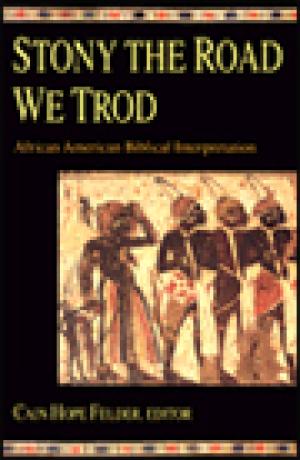
A hallmark of American black religion is its distinctive use of the Bible in creating community, resisting oppression, and fomenting social change. What can critical biblical studies learn from the African American experience with the Bible, and vice versa? This singular volume marks the emergence of a critical mass of black biblical scholars. Combining sophisticated exegesis with special sensitivity to issues of race, class, and gender, the authors of this scholarly collection examine the nettling questions of biblical authority, blacks and African in biblical narratives, and the liberating aspects of Scripture. Together they are reshaping and redefining the questions, concerns, and scholarship that determine how the Bible is appropriated by church, academy, and the larger society today. (From the Publisher)
For too long, the histories, experiences, cultures, and languages of students of color have been devalued, misinterpreted, or omitted within formal educational settings. In this article, the author uses critical race theory (CRT) and Latina/Latino critical theory (LatCrit) to demonstrate how critical raced-gendered epistemologies recognize students of color as holders and creators of knowledge. In doing so, she discusses how CRT and LatCrit provide an appropriate lens for qualitative research in the field of education. She then compares and contrasts the experiences of Chicana/Chicano students through a Eurocentric and a critical raced-gendered epistemological perspective and demonstrates that each perspective holds vastly different views of what counts as knowledge, specifically regarding language, culture, and commitment to communities. She then offers implications of critical raced-gendered epistemologies for both research and practice and concludes by discussing some of the critiques of the use of these epistemologies in educational research.
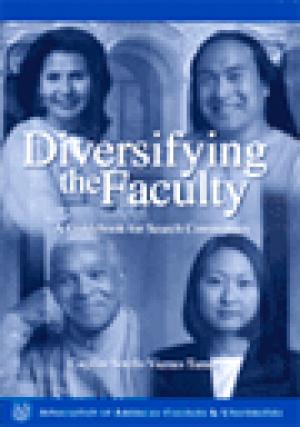
This monograph suggests ways in which an institution can diversify its faculty and facilitate the work of the search committee before a candidate ever reaches the interview stage. It outlines a step-by-step process to improve the likelihood of a successful search, and it recommends items to consider after a hire is confirmed to ensure that the new faculty member will be more likely to stay. The sections are: (1) Before the Search Begins; (2) The Search Process; and (3) After the Search. Appendixes contain a checklist of best practices, a list of leading institutions for minority Ph.D.s, a list of baccalaureate institutions identified as producers of numbers of female doctorates; and a list of Web resources of programs for building diverse faculties. An annotated bibliography lists 59 sources for additional information. (Contains 36 references.) (From the Publisher)
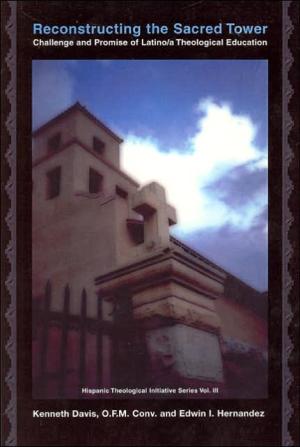
The Hispanic community in the United States is growing by leaps and bounds. The most important institution in Hispanic barrios is the church. Government programs come and go, but the churches remain. So what could be more important than good Hispanic theological leadership? This book is unblinking about the problems involved. Lacking are financial and intellectual resources in otherwise excellent seminaries and other educational institutions. At the same time the book offers a vision of hope. It uses solid data to describe the willingness of many young people to get involved in religious leadership. It shows their eagerness to learn and to serve. The book concludes with a number of well examined and down to earth recommendations. (From the Publisher)
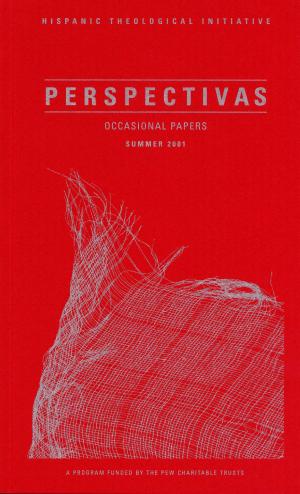
Journal Issue.
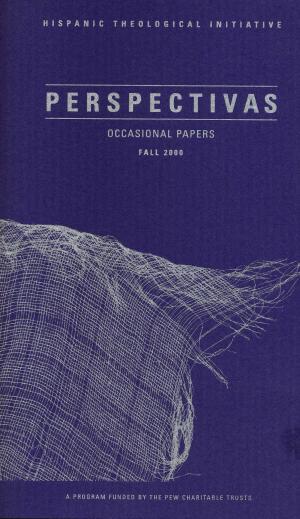
Journal Issue.
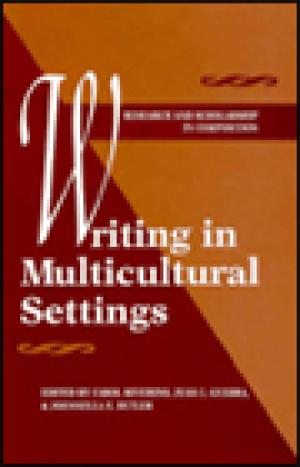
The twenty essays and four responses ("cross-talks") in this volume, the fifth in the Research and Scholarship in Composition series, confront the challenges presented by the racial, ethnic, class, gender, religious, age, and physical-ability differences among today's writing students. The contributors, who teach in classrooms and writing centers at a variety of private and public institutions, discuss their immersion in students' discourses and cultures and balance descriptions of their teaching experiences with careful and critical reflection. The volume begins and ends with sections examining the tensions and conflicts in the classroom; the two sections in between focus more specifically on texts and curricula and on teaching English as a second language. The cross-talks that conclude each section synthesize and critique the essays. Writing in Multicultural Settings is essential, thought-provoking reading for college administrators, writing teachers, and scholars and students in composition studies. (From the Publisher)
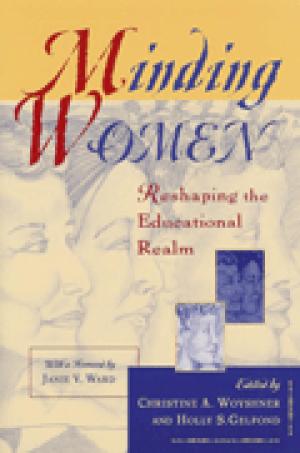
Research on women and girls has exploded during the past twenty years. Since 1977, when the Harvard Educational Review published Carol Gilligan's now-classic article "In a Different Voice," in which she argued so persuasively that women and girls must be understood on their own terms, researchers have been discovering, uncovering, and recovering women's ways of knowing, being, thinking, teaching, and learning. Minding Women charts the wealth of thought and writing related to women and girls and education that this process of discovery has produced. Minding Women begins with a "Classics" section--articles that call attention to the lack of research on girls and women and describe the effect this has had on knowledge and society. The contributors then discuss feminist pedagogy, and how it has changed and been refined over time. Girls and young women are the focus of the next section. Too often their voices and viewpoints are excluded from these discussions, so some of their own writings are included here. The book then explores women's educational history, showcasing some of the rich work in this area over the past twenty years. Identity issues are addressed in the final section, acknowledging that substantial differences exist among groups of women and girls on how they experience the world and their roles, prospects, and lives. (From the Publisher)
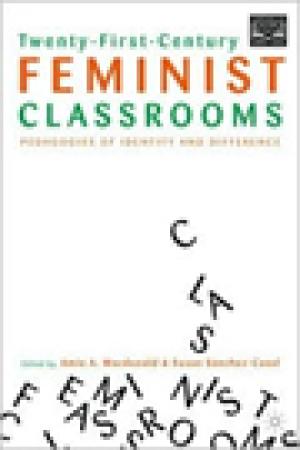
This anti-racist feminist anthology brings together diverse and challenging theoretical perspectives on the experiences of radical educators who work to redefine pedagogies for communicating the claims of both insurgent disciplines--Women's Studies, African-American Studies, Latino Studies, Ethnic Studies, Queer Theory, etc.--and radicalized versions of traditional areas of study--History, Sociology, Foreign Languages, Literature, Philosophy. The authors' analyses of where and how feminist teachers stand in the fray of conflictive classroom dynamics and institutional politics lead them to outline new inquiries into feminist pedagogy highlighted by an intense focus on identity, experience, and difference. In doing so, Twenty-First Century Feminist Classrooms opens a space for engaged feminist self-criticism that seeks to reinvigorate pedagogical practices grounded in multicultural feminist identities. (From the Publisher)